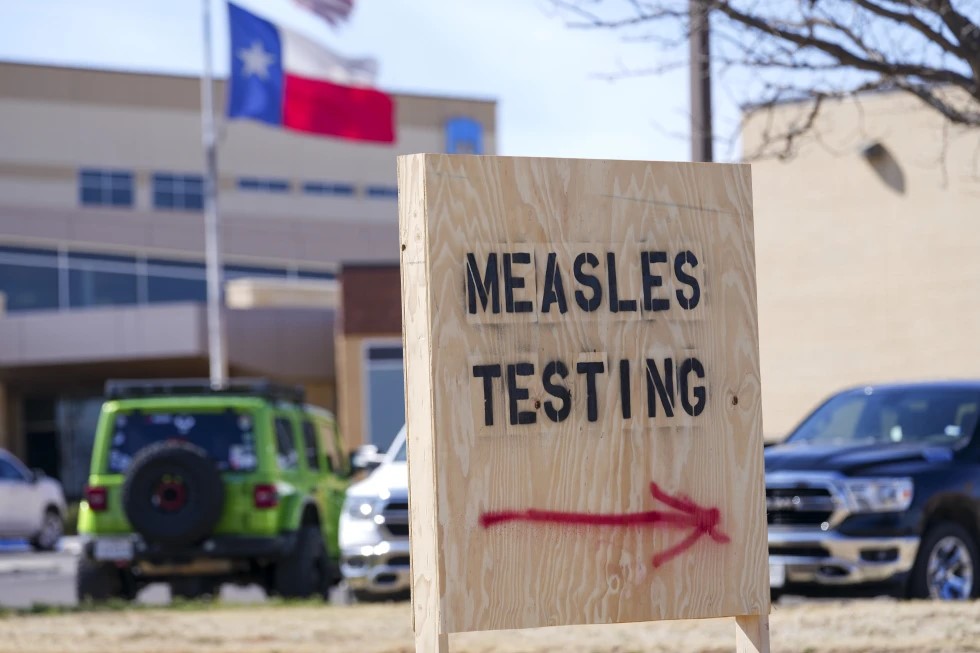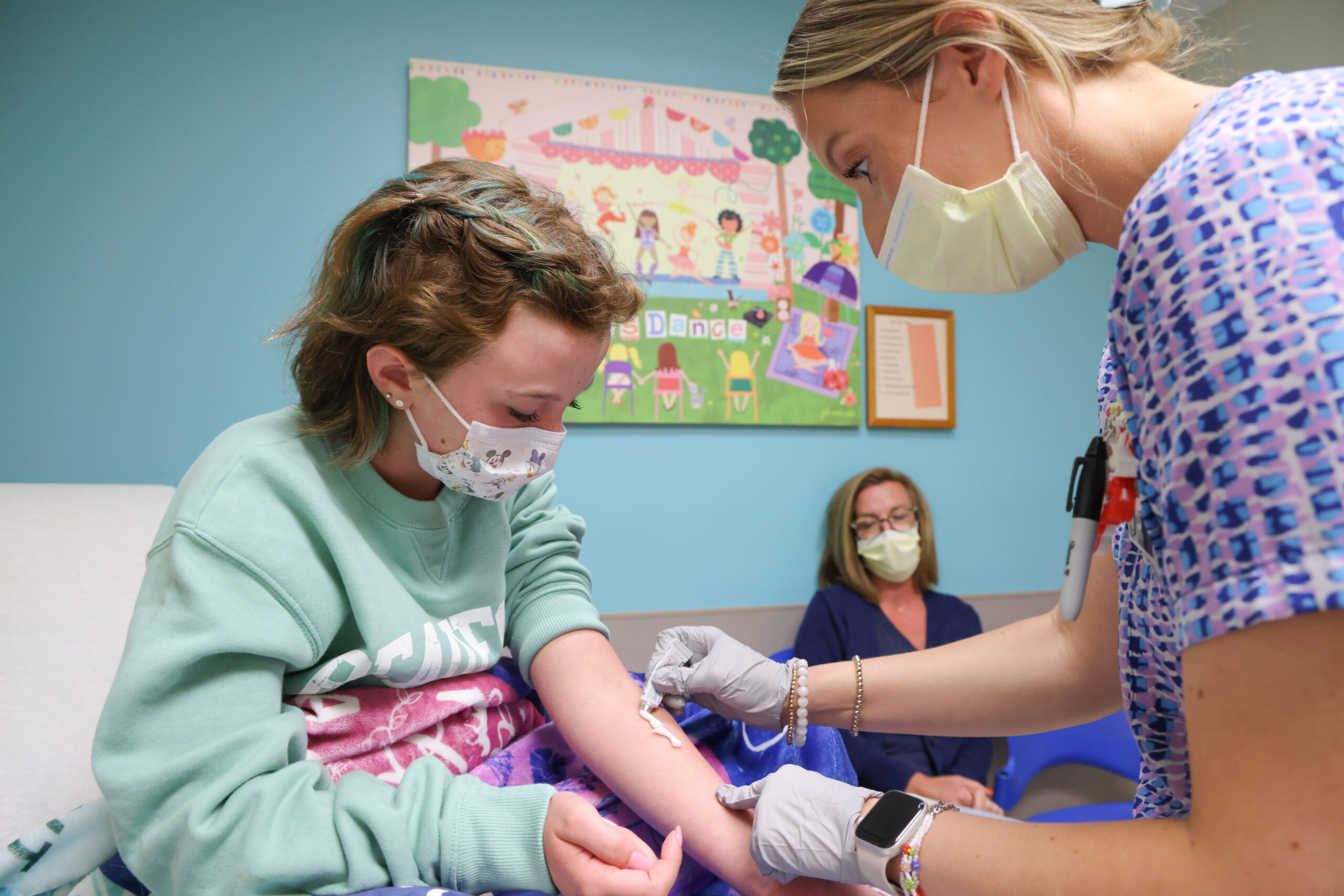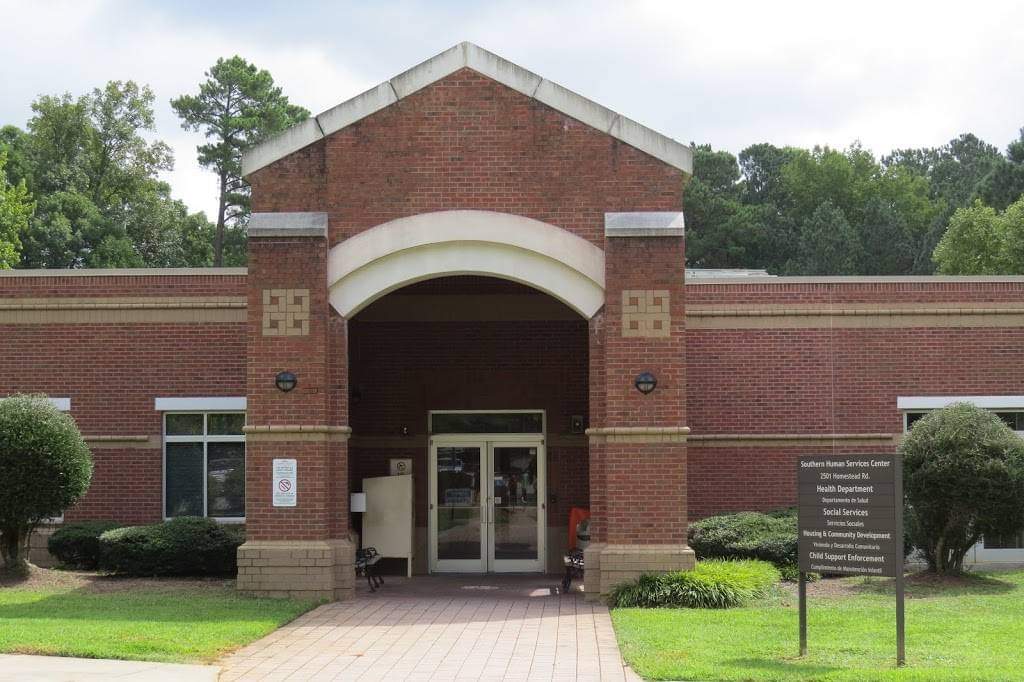Later this month, Orange County is hosting a public symposium on measles, called “Bringing Immunity to the Community.”
Public health officials are hoping the symposium will help get the word out about a national rise in cases — and a national decline in vaccination rates — for a very dangerous, highly contagious, but also easily preventable disease.
“We have been tracking a trend now for at least the last five years or so, where kindergartners are less likely to have their vaccines,” says Dr. Erica Pettigrew, the medical director for Orange County’s government. “For measles, because of how contagious it is, (a) 95 percent (vaccination rate) is the magic number for ‘herd immunity’: not every person is able to get an MMR (measles, mumps, and rubella) vaccine, but if those around them can get vaccinated, then we can keep it from spreading like wildfire.”

Dr. Erica Pettigrew speaks with 97.9 The Hill’s Aaron Keck on May 15, 2025. (Photo by Aaron Keck/Chapel Hill Media Group.)
How well are we doing, statewide and locally?
“Across the state, only 92.5 percent of kindergartners are vaccinated — so we’re already falling short, and there are pockets throughout the state that are (even) lower than that,” Pettigrew says. “Orange County is beating the state average, so I am happy about that: 96.9 percent of our kindergartners are protected as of 2023, but we do have pockets even in Orange County that are lower.”
Click here for more information on the measles, courtesy of the Orange County Health Department.
What is driving the decline in vaccinations? Surprisingly, Pettigrew says it is not so much a matter of disinformation; rather, she says parents often do not have their kids vaccinated simply because they think measles is not a true threat.
Ironically, that might be in part because vaccinations have done such a good job of preventing its spread in the recent past.
“We’re almost a victim of our own success,” Pettigrew says. “It really is this complacency: people simply think, ‘Oh, well, it must not be that bad,’ or you’ll hear well-intentioned older folks say, ‘I had measles when I was a kid, it’s not so bad’ — (but) Susie down the street, who didn’t survive, isn’t here today to talk about their measles. It’s a very contagious, very dangerous virus: about one in five unvaccinated people who catch measles will end up in the hospital, (and) about one to three out of every thousand people who catch measles will die. It’s a really scary infection.
“Prior to 1963,” the medical director continues, “when the vaccine was introduced, we had hundreds of deaths every year in our country, (and) we had millions of cases — and then it dropped to almost zero after vaccines. (But) unfortunately, with people getting vaccinated less and less, we’re starting to see more and more cases.”
Pettigrew says that is true not just of measles, but other preventable diseases as well.
“We have been dealing with a pertussis (whooping cough) outbreak in our community in the last couple of weeks,” she says. “For most people, that’s just an annoying cold with a really violent cough — but for babies, and for people with fragile medical conditions, they can get really, really sick and even die.”
Orange County’s public measles symposium is Friday, May 30, from 8 a.m. to 1 p.m. in the Whitted Building in Hillsborough.
Whether you attend the symposium or not, Dr. Pettigrew says the key message from health experts is the same: get vaccinated, and make sure your kids are vaccinated too.
“We have hundreds and hundreds of years of data on measles,” she says. “It was first written about in the ninth century. So we know this virus, and we know how to combat it — and one of the most effective tools we have is a highly, highly effective and safe vaccine.”
Chapelboro.com does not charge subscription fees, and you can directly support our efforts in local journalism here. Want more of what you see on Chapelboro? Let us bring free local news and community information to you by signing up for our newsletter.










